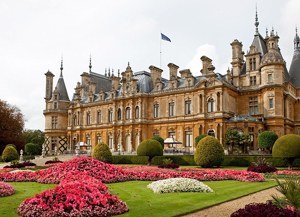Hair discrimination in the workplace
For many, the idea of facing workplace discrimination because of their hair is an odd one. They are safe in the knowledge that, with a few moments of effort in the morning, their hair will be deemed appropriate for any working environment. Even my unruly curls can be tamed to comply with the most overbearing dress code, should the need arise, without me needing to sacrifice the health of my hair or any aspect of my identity. However, this is a luxury I have because workplace dress codes are almost inevitably drafted with Caucasian hair, like mine, in mind.
Black employees, with Afro textured hair, are rarely afforded the same regard. Sadly, many black people experience discrimination because of their hair, facing comments about how their hair is "messy" or "unkempt" (have a read of this BBC News article). 1 in 5 black women feel societal pressure to straighten their hair and many report being explicitly told that they need to change their hair in order to work at certain businesses.
These businesses are likely guilty of race discrimination. Some organisations might argue that their dress code or policy cannot be discriminatory, because it applies to all races equally and does not mention afro textured hair. For example, earlier this year, after Ruby Williams was repeatedly sent home from school because her Afro hair violated the uniform policy, the school claimed that the policy wasn't discriminatory, as it applied to everyone and was necessary for health and safety purposes. We'll never know how a court would have responded to this argument, as the school settled Ruby's claim, but I suspect it wouldn't have gone down well. The school may not have discriminated against Ruby directly because of her race, but this was likely a case of indirect discrimination. Though Ruby's claim involved a student at a school, the same rules apply for workers and businesses.
Indirect race discrimination occurs where an organisation has a provision, criterion or practice (a "PCP") which puts people of a protected group at a particular disadvantage when compared to others, and the employer cannot objectively justify such a policy.
A dress code or policy would definitely qualify as a PCP. If a business' policy on hair in the workplace puts black workers at a particular disadvantage when compared with their white peers, then that business may be indirectly discriminating against its black employees.
A policy banning braids or dreadlocks would be much more likely to negatively impact a black employee, for whom braids or dreadlocks are an important part of their cultural identity as well as a practical means of protecting their hair, than a white employee. Even a seemingly neutral policy, demanding that hair be kept "neat" or "professional", could put black employees at a particular disadvantage due to racist societal norms. There is a unfortunately still a pervasive perception of Afro hair as unprofessional and unpresentable, stemming from centuries of Eurocentric messaging portraying straight hair as the ideal. Therefore, HR or management might subconsciously view afro textured hair as messy or unprofessional, and so contrary to the dress code, while seeing more typical European hair as compliant. This is not just a theoretical grounds for discrimination - black women are affected by these sorts of issues every day.
If an employee brings a claim for race discrimination, the Employment Tribunal could award them uncapped compensation, meaning that such a claim could be very costly for the employer.
Aside from the potential legal risks, employers are becoming increasingly aware of the need to foster an inclusive workplace for all employees. Have a think about your policies and how they might impact all of your staff or someone coming in for a job interview. Are employees being asked to change things about their hair (or anything else), which may be important to them and their cultural identity, in order to fit the business' idea of what a professional workplace looks like? Instead, could the business be the one to change - taking practical steps to improve its culture and policies in order to promote inclusivity and comfort for a diverse workforce?
The Halo Collective, "an alliance of organisations and individuals working to create a future without hair discrimination" has produced a fantastic new code, called the "Halo Code". The Halo Code is designed to be adopted by UK schools and organisations, in order to protect individuals who choose to wear their natural hair or protective hairstyles. It is an incredibly valuable resource and could help employers to accept and celebrate their entire workforce and all potential future recruits.
For many Black employees, battling workplace dress codes - official or unofficial - is part of everyday life. We are forced to choose between our career on the one hand, and our cultural identity and hair health on the other.
















